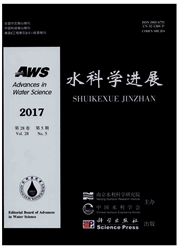

 中文摘要:
中文摘要:
海绵城市建设目前已成为众多行业和科技领域的讨论热点之一,也面临众多争议,海绵城市建设的内涵、目标、内容和效果等均存在不同认识。针对中国城镇化过程中面临的主要水问题,结合参与海绵城市试点建设评审、考察以及对国外海绵城市的调研情况,从城市水文过程的角度,系统解析了海绵城市的概念,就海绵城市建设的目标与指标、建设功能与发展方向、城市地下排蓄系统、建设管理体制等若干问题展开了讨论。核心观点认为,海绵城市是对中国城市水系统的综合治理,也是城市人居环境的重构,功能综合是海绵城市建设成功的前提,海绵城市的建设应以河湖水系为核心,需要流域和城市的整体规划设计,海绵城市建设应该基于多部门、跨行业的优势互补、合作交叉,按照整体规划、系统布局的方式协同推进。
 英文摘要:
英文摘要:
Sponge city has become one of the hottest topics in many industries and technology fields recently, while the current construction of sponge city in China is facing a lot of controversies with different understanding on the con- notation of sponge city, as well as its construction objectives, content and practical results. Considering the water problems in the process of urbanization in China, combined with the authors' research and survey experiences, this article analyzed the concept of sponge city from the perspective of urban hydrology process. Then, a discussion was made on several issues, including construction objectives and indicators of sponge city, function development, under- ground rainstorm storage system and construction & management institution. Finally, a summary of the related discus- sions was given. Key points of this paper are that sponge city is a reshape of the urban water system and the urban liv- ing environment. Integrated functions will be a presupposition of the success in sponge city construction. Urban water system including rivers and lakes are supposed to be cores in the construction of sponge city and an overall program on the basin and city scale is especially needed. The sponge city construction must base on the advantages from multi-sec- toral and cross-sectoral collaborations and need to be designed systematically.
 同期刊论文项目
同期刊论文项目
 同项目期刊论文
同项目期刊论文
 期刊信息
期刊信息
